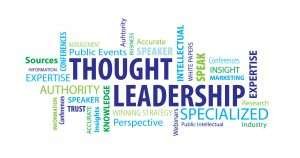
Milton Friedman by Lanny Ebenstein
The biographical works of Milton Friedman and Peter Drucker serve as business models for my work on strategy and intellectual property. My sole purpose for reading “Milton Friedman” was to determine Friedman’s strategy for becoming an eminent economist through academic excellence. In short, what made Friedman an international giant in economics among the thousands of economic professors throughout the world?
Of the hundreds of pages within “Milton Friedman,” page 181 is the crown jewel I was looking for. There were a few factors that led to Friedman’s international fame, including:
1. Publishing his seminal works, “Capitalism and Freedom” and “A Monetary History of the United States.”
2. Participating in Goldwater’s campaign gave Friedman a different stage outside of academia to illustrate the relevance of his work.
3. Writing regularly for Newsweek.
4. Speaking tirelessly as a lecturer, as well as being a prolific writer within different forums.
5. Appearing on programs such as “Meet the Press,” which provided Friedman a larger audience to express his Free Market and Libertarian thoughts and ideas.
Friedman utilized the University of Chicago as a launching pad to disseminate his thoughts and ideas through publishing, speaking, political activity, and the media to become an international star in the field of Economics.
“Milton Friedman” is an excellent outline of how to create, cultivate, and cash in on intellectual capital.

Conversations with Scorsese by Richard Schickel
Richard Schickel’s “Conversations with Scorsese” is the first book I’ve ever read where the entire book is in a “Q & A” form equivalent to a long conversation.
Several nuggets in “Conversations with Scorsese” can be used within any industry.
1. Choose a profession you have an undying love for and immerse yourself in your craft.
2. Within your vocation, become a historian of the past accomplishments of individuals who helped advance the industry.
3. Use the styles and patterns of past and present practitioners within your industry to lay a strong foundation.
4. Develop and create a body of work specific to your experiences.
5. Consistently fight for unadulterated ways of expressing your creativity without compunction.
6. Although you may be passionate about creating a body of work, realize that you are only one piece to a larger puzzle. Your work is built from the producers who came before you. And future generations of creators will develop their work on the legacy you leave behind.
7. Be introspective enough to embrace your strengths and weaknesses.
“Conversations with Scorsese” exemplifies a charismatic way of writing a book that is active and engaging. The book’s strength lies in the ability to create a visual, auditory masterpiece using words as a medium. This creativity comes through the actual dialogue rather than the flowery prose found in traditional writing styles.
I highly recommend this book based on the legendary Martin Scorsese, as well as a style of writing in step with the visual necessity of contemporary society.

Where Good Ideas Come From: The Natural History of Innovation by Steven Johnson
The conventional thinking behind how great ideas emerge is shrouded in a “turning point” rather than evolution. Malcolm Gladwell’s “Tipping Point…” sheds light on the incremental process of how trends start from ground zero and gain momentum organically.
Steven Johnson’s “Where Good Ideas Come From…” takes the science of innovation, fundamentally drawn from Darwin’s “The Origin of Species”, a step further by turning the idea of “genius” on its ear.
Johnson reveals that the creativity of phenomenal innovation is largely steeped in a preternatural curiosity coupled with converging ideas with like-minded individuals.
Johnson outlines a paradigmatic system based on scientific reasoning that becoming a world-class performer hinges on one’s lifestyle, thinking process, and malleability to change and opportunity. Although he does not specifically use these words, the synthesis of Johnson’s philosophical construct builds on the notion that great writers, thinkers, scientists, etc… astound the world with their brilliance by being receptacles for insights, as well as conduits.
This is an excellent book for individuals who are interested in the practical aspects of acquired and sustained success. The end result is the difference between Apple’s Steve Jobs and the ones who never were.
I highly recommend this book to goal oriented readers filled with compelling ambition.

House of Versace: The Untold Story of Genius, Murder, and Survival by Deborah Ball
Deborah Ball’s, “House of Versace,” starts out slow, but picks up steam. Like most biographies, the early years of an icon’s life is largely uneventful, but as the person grows and finds his place in the world, the drama heats up. “House of Versace” is no different.
Although, Gianni Versace was not the first fashion designer to dress celebrities, he is credited for electrifying and bringing to life the charisma within clothes. If charisma is defined as “Creating perceptions that impact the mind and emotions of others through flair, finesse, and glib language,” Versace used his insatiable creativity to create perceptions that disrupted and influenced mainstream fashion.
In addition, Versace embodied the impact of a compelling idea. The Versace brand lives on through the sheer imagination, erudition, and tenacity of the late Gianni Versace.
An excellent marketing and business book about how brands are created.
Also, “House of Versace,” outlines the difficulties of institutionalizing the charisma of the founder once he perishes.
This book is an excellent instructional guide for defining, systematizing and perpetuating a global concept.

Basic Economics, 5th Edition by Thomas Sowell
Dr. Sowell’s exegesis on economics is exemplary in that he successfully fuses the rationalism of economics with the inner workings of economic systems.
The first and only economics book that does not have any charts or graphs underscores the real intention of Dr. Sowell, which is to demystify economics and place it within its rightful role of systematic thinking.
In other words, qualifying and quantifying how scarce resources are distributed throughout economic systems with a clear understanding that there are no perfect solutions, only trade-offs, according to Dr. Sowell.
Once the 634 pages have been read, Basic Economics should become a permanent addition to one’s desk reference.
Basic Economics is not only the foundation for how all economic systems work throughout the world, but how life, itself, is based on economic intelligence.
An excellent read for people who thought economics is boring, but reflective for succeeding in life.
Reviews by Edward S. Brown, M.S.


